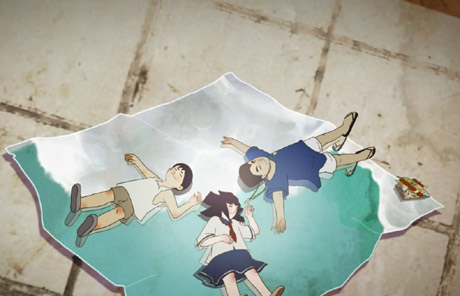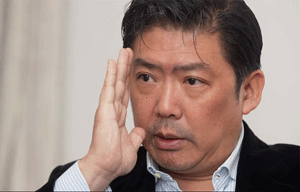Europe needs some time and patience
Updated: 2011-10-21 11:08
By Kerry Brown (China Daily Euroepan Weekly)
|
|||||||||
|
 |
As an idea, Chinese, at least according to surveys, like Europe. They respect its languages, they like its image, and they enjoy coming to visit as tourists. Among the political elite, at least, there is understanding of what the EU is as an entity, and how valuable it is as a trade partner. But trying to arouse more popular understanding of what the EU is about is a different matter.
This should not be so surprising. In his excellent study of the EU, The New Old World Order (Verso 2010) US based academic (though originally from Ireland) Perry Anderson stated that, even to citizens of its key member states, the EU is something of a mystery. So much of a mystery, in fact, that a brand new center to explain how the union works, what its founding visions were, how it is structured, has been opened in Brussels, the effective capital of the EU, where many of the main institutions are located. If it looks complicated inside, then why should it make sense to those who are living far from its borders?
The Chinese government has engaged with this complex entity by creating a "strategic partnership" framework. There is a great deal of argument about what this means. China has strategic partnerships with many other countries. Perhaps the EU China High Level Dialogue, which will be held at the end of October between Chinese State Councillor Dai Bingguo and EU High Representative for Foreign Affairs Katherine Ashton, will give some more idea of exactly what the future positive dynamics of the relationship between the two are.
Overshadowing their talks will be one major issue - the ongoing crisis of the eurozone. The economic roots of this are well known, inside and outside the EU. The inability of Greece to live up to the commitments it signed when it adopted the euro almost a decade ago, has now unravelled to such an extent that there is a real fear it will default on the loans it already has from the European Central Bank and the International Monetary Fund, and also let the crisis reach much larger economies.
The key leaders of the countries in the eurozone area, President Nicolas Sarkozy of France and Chancellor Angela Merkel of Germany, have made it clear that their political commitment remains, in the end, to support the euro no matter what. But the political, rather than economic, issues around the crisis, which have been boiling since the middle of last year, are proving far harder to assess. What began as clearly an economic crisis has now, almost inevitably, become a political one.
It is this political dimension that probably most frustrates China. The union presents itself as the victory of multilateral, regional cooperation. And yet when a real crisis comes, it seems there is a crisis of leadership, of vision, and of strategy. The current problems prove that there is one key player in Europe - Germany - and that the decisions made about the politics and economics of the most populous country in the union, and the largest of its economies, have a profound impact across the whole of the continent, and the rest of the world.
Germany's long era of deep cooperation with Europe has been severely tested by the events in the eurozone. Merkel faces re-election in 2013, with an increasing awareness that the middle class in the country who have elected her are growing more and more furious at what they see as the laziness and lack of prudence of countries like Greece and Italy. The domestic consequences of the decisions she has so far made are still not clear, but that she is operating close to the limits of her democratic mandate is clear. The idea of Germany writing Greece a blank cheque at a time when its own economy experienced far less robust growth than expected in the last quarter would be electoral poison for her.
China has bought modest amounts of eurobonds, but its position so far has been cautious. While the strategy of diversifying away from US dollar-denominated currencies may be in China's interests, being exposed to the kinds of risks in the euro at the moment is also a good antidote to this. Some commentators in Beijing, like Peking University academic Yao Yang, writing in the Financial Times in September, stated that the Chinese, because of the political disarray that lay at the heart of the euro crisis, would be wise to steer well clear of getting more deeply involved. Why come to the rescue of a region where per capita GDP is several times higher than that of China, using the hard won reserves of the central bank to bail out economies and countries which have been living beyond their means for too long?
No one expected, in 2008, that the economic crisis then would reach so deep, and that it would continue so long. In 2009, the more optimistic in the US and the EU talked of "green shoots of recovery." But with 2011 almost at an end, the real fear remains that the developed world is about to go into a second recession, and that the impact of the first was far greater and more extensive than had ever been expected. Governments remain preoccupied with narrow domestic issues, appeasing key constituencies in order to ensure their re-election, or to gather votes to support unpopular legislation to ensure their bailouts continue on track.
The reaction in Greece has been typical - unrest, throughout the year, with parliamentary anger at the terms enforced for the bailout by external actors, and a political elite who have been buffeted and compromised by the constant bad news they have to be the heralds of. This year, Greece's economy is likely to shrink by 5 percent. Across the EU as a whole, growth is expected to remain flat at best, and at worst, shrink. For this crisis, at least, there is no easy end in sight.
Despite all this, the ideals of Europe remain strong - the ideals of multilateralism, or a rule-based international trade system, and more sustainable and fairer futures, for the member states, and for those in the rest of the world. The EU's collapse would be a calamity, for the whole world. It would cripple one of the great areas of economic innovation and productivity, and bring in a harsher, more troubling era. In their hearts, Europe's politicians know this, whatever reservations they may have about some of the details of the EU's work. The EU's aspirational language sometimes may irritate, but its function as a positive force in the world economy and in global politics is, in the end, undeniable.
For this reason, we all have to hope that the major politicians in the EU now - and that predominantly means Merkel and Sarkozy - despite the fact that they are being buffeted by both domestic and international forces which are unprecedented, keep their nerve. They have never had to tread the line so carefully between serving national interest, and yet also pursuing the multilateral objectives of the EU. For them, saving the euro will be the defining action for their time in power.
For all the anger over the actions particularly of the Greek government in getting into this mess in the first place, that cannot distract from the massive objective of maintaining the stability of the eurozone, and ensuring that the great project of the EU remains on course, reformed, of course, and hopefully more fit for purpose for the future, but at least able to face the future more confidently.
Where does China play a role in that? Well, with a more tightly defined, and more mutually beneficial relationship, a very big one. For the past two decades, the two have talked, learned a lot about each other, mapped out a number of different strategies and approaches. Now is the time to start thinking much harder about the practical ways forward, the real areas where both can work with each other. Crises have one advantage - they tend to cut down on rhetoric and show which proposals are really workable, and which have to be abandoned.
The EU and China certainly need each other; now is the time to spell out with absolute clarity why, and how, they can move forward in the years ahead. And while China may be irritated by the mess over the eurozone, a gesture now would send the strongest message that, as it so often says in other parts of the world, for the EU too, China is much more than just a fair weather friend.
The author is head of the Asia Programme at Chatham House. The opinions expressed do not necessarily reflect those of China Daily.









